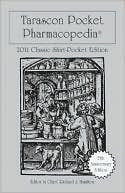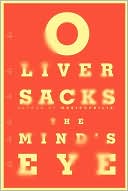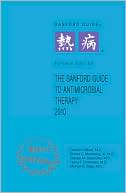Neuropsychology and Cardiovascular Disease
Roughly one of every three Americans has some form of cardiovascular disease (CVD), including more than 70% of persons older than 75 years of age. Long associated with increased risk for mortality and disability, CVD is also a major risk factor for stroke and cerebrovascular disease. There has been growing consensus that CVD is also an important contributor to poor neurocognitive outcome in own right. Numerous studies now link CVD to accelerated cognitive decline, and structural and...
Search in google:
Roughly one of every three Americans has some form of cardiovascular disease (CVD), including more than 70% of persons older than 75 years of age. Long associated with increased risk for mortality and disability, CVD is also a major risk factor for stroke and cerebrovascular disease. There has been growing consensus that CVD is also an important contributor to poor neurocognitive outcome in own right. Numerous studies now link CVD to accelerated cognitive decline, structural and functional brain abnormalities, including neurodegnerative conditions in the elderly. While vascular dementia is the most obvious example of severe brain dysfunction directly tied to chronic vascular disease, evidence is also mounting that Alzheimer's disease may be linked to some of the same pathophysiological mechanisms that underlie cardiovascular disease. This book was written to provide up-to-date insight into these heart-brain connections and the neuropsychology of CVD. Highlights include:· Controversies in vascular dementia and vascular cognitive impairment (VCI)· Effects of aging on cerebral hemodynamics and autoregulation· How blood vessel function contributes to cognitive decline· Updates on the cognitive impact of cardiosurgical procedures· Neurocognitive aspects of heart failure· Neuropsychological evaluation of persons with CVD· Mechanisms by which neurological changes produce cardiac dysfunction· Recent findings in the structural and functional neuroimaging in CVDBoth clinicians and researchers in neuropsychology, health psychology, cardiology, neurology, psychiatry, geriatrics and many others will find this book an important resource. Doody Review Services Reviewer:Christopher J. Graver, PhD(Madigan Army Medical Center)Description:Cardiovascular disease affects millions of people in a variety of ways, and not always limited to the heart. This book takes a broader look at the sequelae of cardiovascular disease with a particular focus on brain changes and neuropsychological effects.Purpose:The two main purposes are to provide a foundation for understanding cardiovascular disease and to present a review of the literature regarding neuropsychological functioning and heart disease in individuals with chronic cardiovascular disease.Audience:This book is intended for neuropsychologists, clinical psychologists, psychiatrists, and neurologists, as well as students of these disciplines. It is written at an accessible level for clinicians and students. Features:An introduction to cardiovascular disease is followed by conditions that frequently are comorbid, such as diabetes type 2. Next is an excellent review of the clinical, historical, and neuropsychological features of vascular dementia. There is good coverage of basic cardiac function, as well as cardiac rehabilitation. Although an important topic, the chapter on cardiovascular disease and depression seems out of place. Much of the information it presents on assessment is generic to any good neuropsychological evaluation, but there is a list of clinical considerations in vascular dementia that is helpful for structuring an interview and records review. The next few chapters provide information on various manifestations of heart disease and the associated neurological and neuropsychological outcomes. These are solid and concise reviews that on their own make the book worthwhile, covering more advanced topics such as systemic vascular function and cerebral hemodynamics. This is further extended with a discussion of autonomic nervous system dysfunction. The book wraps up with a brief review of neuroimaging and provides a few MRI examples, but this could have been much more robust given the topic and heterogeneity in presentation. The references are current and abundant with a strong scientific foundation.Assessment:Readers would be hard pressed to find a more comprehensive review of cardiovascular disease and the neuropsychological sequelae. This book exceeds the goal of providing a useful reference for neuropsychologists or behavioral neurologists working with patients with vascular disorders. It should accompany any general neuropsychology book for its expert coverage of this critical area.
Table of Contents Preface Contributor list Part One: Introduction and Overview1Introduction Ronald A. Cohen2Neuropsychology of Heart Disease: Levels of Analysis Ronald A. Cohen3Epidemiological Factors in the Neuropsychology of Cardiovascular Disease John Gunstad, Andreana Benitez, Suhrida Yadavalli, Ashley Szabo4Vascular dementia: a clinical conundrum Elizabeth M. Lane, Susan E. Malone, Robert H. Paul5Overview of Cardiovascular Physiology and Pathology W. Kin Fung, Athena Poppas6Cardiac rehabilitation for elderly cardiac patients Daniel Forman, Jose Suaya7Depression and Heart Disease: Current Treatment Recommendations and Future Directions in Mechanism Research Joel W. Hughes, Elizabeth C. CaseyPart Two: Neuropsychological Effects of CVD8Clinical considerations in the neuropsychological assessment of patients with cardiovascular disease Ronald Cohen, John Gunstad, Andreana Benitez9Blood Pressure and Cognitive Function John Gunstad, Kelly Stanek, Ashley Szabo, Lynn Kakos10Neuropsychological Sequelae of Metabolic Syndrome Valerie H. Taylor, G.M. MacQueen11Neurological Sequelae and Cognitive Outcomes Following Cardiosurgical Intervention Jeffrey Browndyke, P Smith12Heart Failure and Cognitive Function Karin F. HothPart Three: Systemic and cerebrovascular mechanisms underlying VCI13Cardioembolic Stroke E. Jesus Duffis, Marc Fisher14Cardiac Output and Ejection Fraction: Impact on Brain Structure and Function Farzin Irani15Systemic Vascular Function and Cognitive Function Ivy N. Miller, William G. Haynes, David J. Moser16Cerebrovascular hemodynamics and cerebral autoregulation in the aging brain Jorge M. Serrador, William P. Milberg17Measurement of Arterial Function and Reactivity Brian E. Hunt18Autonomic Nervous System Function in Persons with Neurological Conditions Louise Allan19Structural and Metabolic Magnetic Resonance Imaging and Vascular Risk Factors Istvan Csapo, Troy Russell, Jared Price, Daniel McCaffrey, Jeffrey Dewey, Ekta Sem, David F. Tate20Functional Neuroimaging In Cardiovascular Disease Lawrence H. Sweet, Andreana P. Haley, Ronald A. Cohen21The Dysexecutive Syndrome Associated with Subcortical White Matter Disease & Related White Matter Pathology Melissa Lamar, Cate C. Price, Tania Giovannetti, Rod Swenson, David J. Libon
\ From The CriticsReviewer: Christopher J. Graver, PhD, ABPP-CN(Madigan Healthcare System)\ Description: Cardiovascular disease affects millions of people in a variety of ways, and not always limited to the heart. This book takes a broader look at the sequelae of cardiovascular disease with a particular focus on brain changes and neuropsychological effects.\ Purpose: The two main purposes are to provide a foundation for understanding cardiovascular disease and to present a review of the literature regarding neuropsychological functioning and heart disease in individuals with chronic cardiovascular disease.\ Audience: This book is intended for neuropsychologists, clinical psychologists, psychiatrists, and neurologists, as well as students of these disciplines. It is written at an accessible level for clinicians and students. \ Features: An introduction to cardiovascular disease is followed by conditions that frequently are comorbid, such as diabetes type 2. Next is an excellent review of the clinical, historical, and neuropsychological features of vascular dementia. There is good coverage of basic cardiac function, as well as cardiac rehabilitation. Although an important topic, the chapter on cardiovascular disease and depression seems out of place. Much of the information it presents on assessment is generic to any good neuropsychological evaluation, but there is a list of clinical considerations in vascular dementia that is helpful for structuring an interview and records review. The next few chapters provide information on various manifestations of heart disease and the associated neurological and neuropsychological outcomes. These are solid and concise reviews that on their own make the book worthwhile, covering more advanced topics such as systemic vascular function and cerebral hemodynamics. This is further extended with a discussion of autonomic nervous system dysfunction. The book wraps up with a brief review of neuroimaging and provides a few MRI examples, but this could have been much more robust given the topic and heterogeneity in presentation. The references are current and abundant with a strong scientific foundation.\ Assessment: Readers would be hard pressed to find a more comprehensive review of cardiovascular disease and the neuropsychological sequelae. This book exceeds the goal of providing a useful reference for neuropsychologists or behavioral neurologists working with patients with vascular disorders. It should accompany any general neuropsychology book for its expert coverage of this critical area.\ \ \ \ \ From The CriticsReviewer:Christopher J. Graver, PhD(Madigan Army Medical Center)\ Description:Cardiovascular disease affects millions of people in a variety of ways, and not always limited to the heart. This book takes a broader look at the sequelae of cardiovascular disease with a particular focus on brain changes and neuropsychological effects.\ Purpose:The two main purposes are to provide a foundation for understanding cardiovascular disease and to present a review of the literature regarding neuropsychological functioning and heart disease in individuals with chronic cardiovascular disease.\ Audience:This book is intended for neuropsychologists, clinical psychologists, psychiatrists, and neurologists, as well as students of these disciplines. It is written at an accessible level for clinicians and students. \ Features:An introduction to cardiovascular disease is followed by conditions that frequently are comorbid, such as diabetes type 2. Next is an excellent review of the clinical, historical, and neuropsychological features of vascular dementia. There is good coverage of basic cardiac function, as well as cardiac rehabilitation. Although an important topic, the chapter on cardiovascular disease and depression seems out of place. Much of the information it presents on assessment is generic to any good neuropsychological evaluation, but there is a list of clinical considerations in vascular dementia that is helpful for structuring an interview and records review. The next few chapters provide information on various manifestations of heart disease and the associated neurological and neuropsychological outcomes. These are solid and concise reviews that on their own make the book worthwhile, covering more advanced topics such as systemic vascular function and cerebral hemodynamics. This is further extended with a discussion of autonomic nervous system dysfunction. The book wraps up with a brief review of neuroimaging and provides a few MRI examples, but this could have been much more robust given the topic and heterogeneity in presentation. The references are current and abundant with a strong scientific foundation.\ Assessment:Readers would be hard pressed to find a more comprehensive review of cardiovascular disease and the neuropsychological sequelae. This book exceeds the goal of providing a useful reference for neuropsychologists or behavioral neurologists working with patients with vascular disorders. It should accompany any general neuropsychology book for its expert coverage of this critical area.\ \








